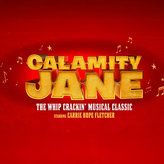Animal Farm - Theatre Review
- Elemental Theatre Company
- 5 days ago
- 3 min read
★★★★☆
"Four legs good, two legs bad." This is the iconic chant from George Orwell's 1945 classic Animal Farm. The animals rebel against their human oppressors, chanting this mantra recurrently. But how does this translate on stage when the animals are portrayed by actors who unmistakably walk on two legs?

Animal Farm is a political allegory narrating the tale of farm animals overthrowing their human owner to pursue equality and a better life. Led by the pigs Napoleon, Snowball, and Squealer, they establish a new society based on the principle that "all animals are equal." However, as time passes, the pigs become increasingly corrupt, eventually becoming indistinguishable from the tyrannical humans they replaced. The story serves as a powerful critique of totalitarianism, the betrayal of revolutionary ideals, and how power can corrupt.
This production boasts an exceptionally gifted ensemble cast, with not a single performer wasted. Every moment on stage feels lived-in, layered, and purposeful. That said, several performances deserve special mention. Tom Simper is magnetic as Squealer, the sly and silver-tongued spin doctor of the pigs. His transformation throughout the show, from nervous runt to swaggering manipulator, is packed with spine-tingling precision, his vocal shifts and physicality masterfully charting his rise.

Gabriel Paul is perfectly cast as Boxer, the loyal workhorse whose strength is only matched by his heartbreakingly unwavering faith in the cause. His determination to build the windmill is quietly heroic, but when the betrayal comes, it’s genuinely devastating.
Brydie Service delivers a stunning turn as Clara the hen. Initially subtle and hidden in the background, her eventual resistance is fierce and shocking. The image of her crushing her own eggs in defiance, blood splattering across the stage, is one of the production’s more arresting visual moments.
Joshua-Alexander Williams is mesmerising as Blue, the sheepdog. His evolution from youthful, excitable puppy to attack dog is unnerving and brilliantly judged. His physical presence alone carried a real threat.
Tachia Newall makes a commanding Napoleon. Not a moustache-twirling villain, but a dangerously earnest leader who seems to believe his own twisted logic. Meanwhile, Tianah Hodding offers a much-needed sense of innocence and emotional clarity, her wide-eyed characterisation anchoring the darker turns of the story.

Director Amy Leach takes a bold and imaginative approach with this production, stepping away from the traditional use of puppetry or elaborate animal costuming in favour of a more symbolic, human-centred portrayal. The cast leans into physicality with grunts, whinnies, and the occasional swish of movement, sketching their animal personas with admirable restraint and consistency. It’s a striking stylistic choice that suits the modern aesthetic of the piece — but I have to admit, it didn’t fully land for me. When characters chant “Four legs good, two legs bad” while standing on two legs themselves, or when they reference rules about clothing while fully dressed, the clarity of Orwell’s allegory starts to blur. The subtlety is visually interesting, but for me, it meant Napoleon’s final transformation into a human lacked impact — the symbolism was already muddied. It didn’t break the show by any means, but it did leave me working harder than I wanted to stay immersed.
Where this production truly takes flight is in its outstanding technical design. Jai Morjaria’s lighting is nothing short of masterful, from searing audience blinders that ratchet up the tension, to stark blackouts marking death with chilling clarity, and haunting use of shadow. It’s lighting design at its finest. Paired with Khalil Madovi’s razor-sharp sound design, the atmosphere is electric. The use of pounding percussion to build suspense and the echoing cries as Clara is led to her fate were genuinely spine-tingling.

Kane Husbands’ choreography is another major triumph. Physical storytelling can sometimes feel like filler, but here it’s essential and evocative, driving the narrative with strength and precision. The integration of British Sign Language throughout the show doesn’t just enhance accessibility — it becomes part of the movement language of the piece, adding rhythm, energy, and emotional depth. Bold, brilliant, and beautifully executed.
Overall, Animal Farm — produced by Leeds Playhouse and Stratford East in association with Nottingham Playhouse — is a thought-provoking and artistically ambitious production that has found great strength in its design, movement, and use of technology. The stellar performances by the ensemble cast and innovative stage ensure that Orwell’s timeless message resonates powerfully. This is a compelling production that I’m glad I got the chance to see.












































Comments